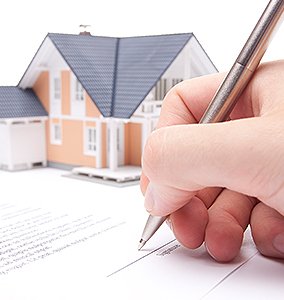5 surprises for first-time homebuyers and how to prepare
The road to homeownership can take an unexpected turn. Here’s how to ensure a smooth ride.
As if homebuying in today’s challenging market weren’t stressful enough, the process can be full of twists and turns that keep you on your toes.
Knowing what to expect can help you prepare and ensure your path to buying a home goes as smoothly as possible. Consider these potential curveballs and put these practices in place to address them.
-
House prices may exceed your budget
The housing shortage in many parts of the United States means there are fewer houses on the market right now, which is pushing prices up. Couple that with higher mortgage interest rates, and housing affordability may be much different than you had planned for.
How to prepare: Chat with a lender before you start looking to get a realistic sense of how much you can afford. If the houses you’re considering are out of your price range, expand your search to a more affordable neighborhood or scale back your list of must-have attributes.
-
You may need more cash than you thought
In addition to a down payment, you may need to pay for closing costs, at the end of the transaction. This may include third-party charges for appraisals, lawyers and credit reports. Closing costs vary based on several factors including your location and the type of mortgage, but they typically amount to 3% to 6% of the total home loan. That works out to $9,000–$18,000 on a $300,000 mortgage.
How to prepare: Your lender must give you a closing cost estimate within three days of your application for a home loan. Make sure you have the cash set aside for those expenses well before closing.
-
Conflicting schedules may affect your timeline
There are a lot of moving parts before a home sale is complete. As you finalize your loan with your lender, buy homeowners insurance and arrange for the transfer of utilities, the seller may be wrapping up moving plans, packing and working to make repairs following a home inspection. But there will be other parties working to finish their own tasks, all of which can affect the timeline of the transaction. The closing agent, title company and real estate agent may be:
- Calculating prorated property taxes
- Clearing items on the title
- Communicating with you and the seller about the closing schedule
How to prepare: Communicate regularly with your lender and real estate agent to make sure the process moves forward. Schedule a walk-through of the house with your real estate agent for the day before closing to make sure you’re satisfied with repairs.
-
You may have to pay your agent’s commission
A recent court ruling and a National Association of Realtors settlement have put an end to the long-standing practice in which sellers pay the commission to both their agent and the buyer’s agent. Historically, sellers have paid 5% to 6% in commissions, split between the two agents. As a result of the settlement, you’ll have to negotiate the commission you pay directly with the agent you use if you choose to use one.
How to prepare: Shop around. Interview multiple agents to determine what they’ll charge to help you find and purchase a home. If you like an agent who wants to charge more than you’re willing to pay, ask whether they’ll meet a competitor’s price. Keep in mind, however, that the services provided by agents vary, and those working for the lowest possible price may have less experience or less time to spend with you.
-
Closing may take longer than you expect
On the day of your closing, you’ll need to bring your original purchase contract, a current passport or driver’s license to confirm your identity, and possibly papers proving that you have purchased homeowners insurance. A failure to have all the paperwork or a delay experienced by one of the other parties in the transaction could prolong the settlement process.
How to prepare: Double-check with the closing agent or your lender to make sure you have all the documentation you will need. Set aside at least two hours for the closing process, in which you’ll have to sign a stack of papers. If possible, set the meeting for early in the day, in case it lasts longer than expected.
The bottom line
A little research (and some additional savings in the bank) can go a long way toward helping you feel confident and knowledgeable when it comes to buying a house. Don’t be afraid to ask questions if anything’s unclear as you navigate the closing process.
If things get tough, remember what waits on the other side of the closing table: the keys to your new home.
Start today
- Read more: Renting vs. buying a home: What’s best for you?
- Learn more: Take one of our homeownership courses to prepare for the homebuying process.
- Take action: Speak to a mortgage loan officer about how you can best prepare.






